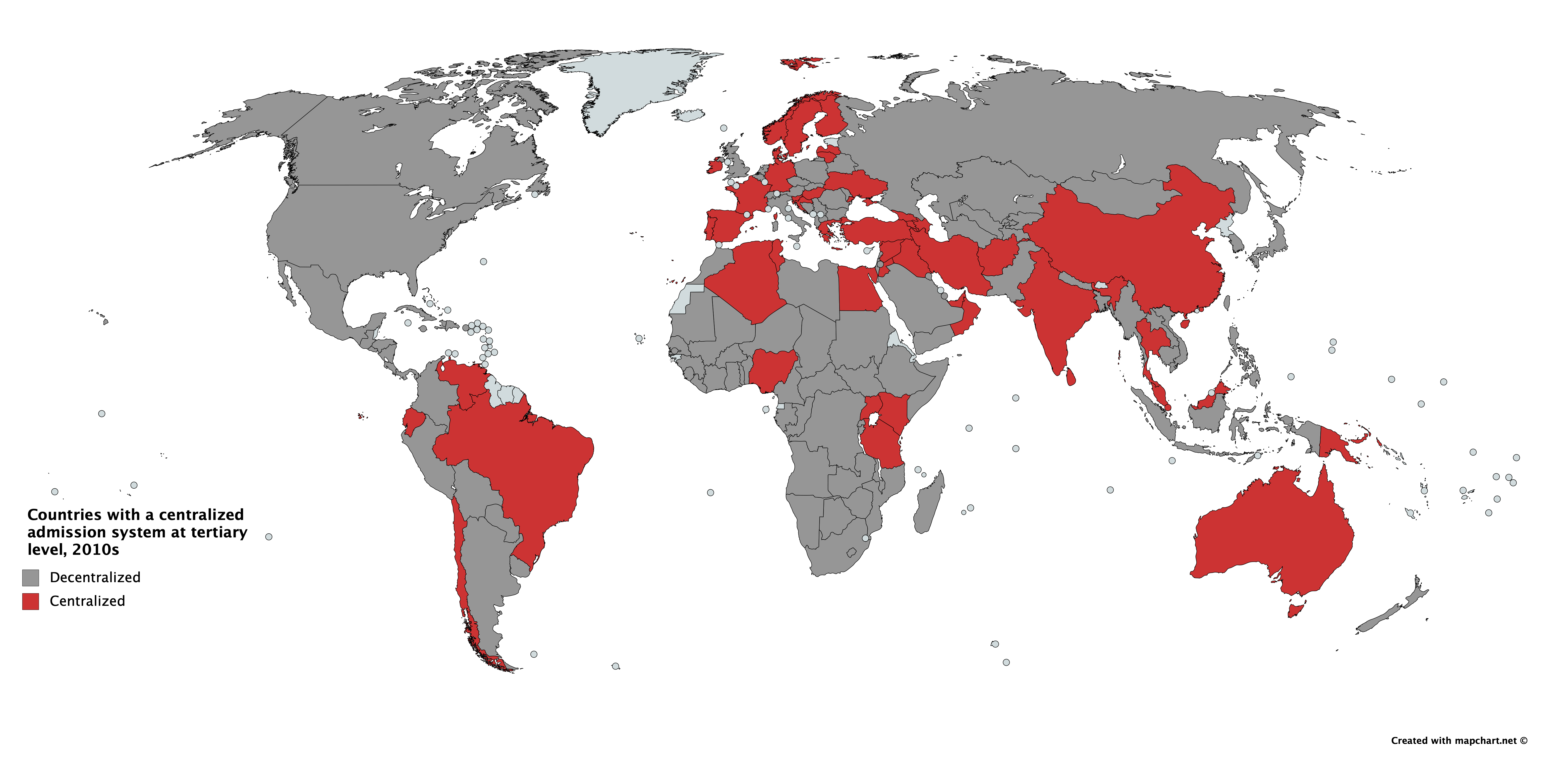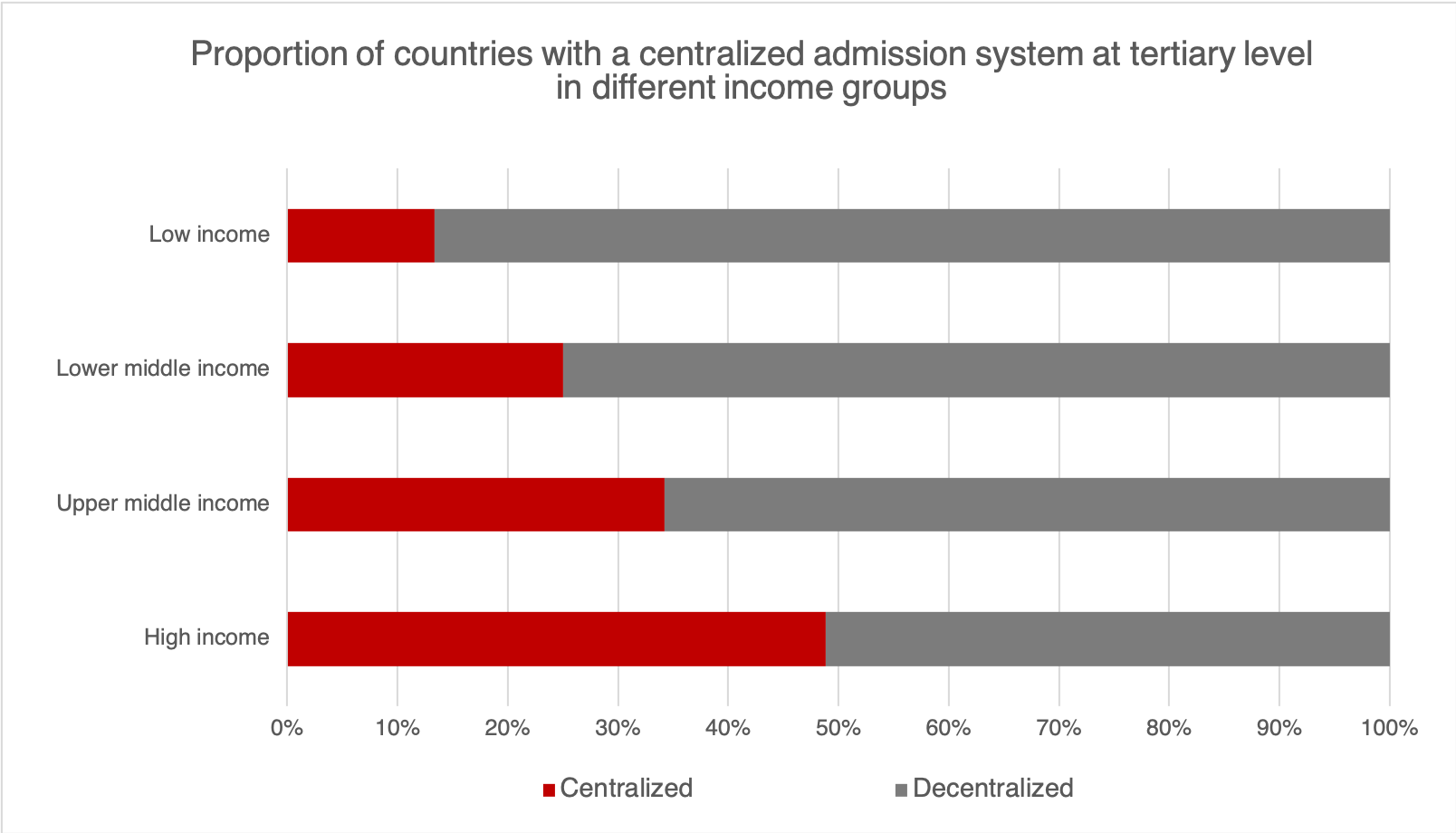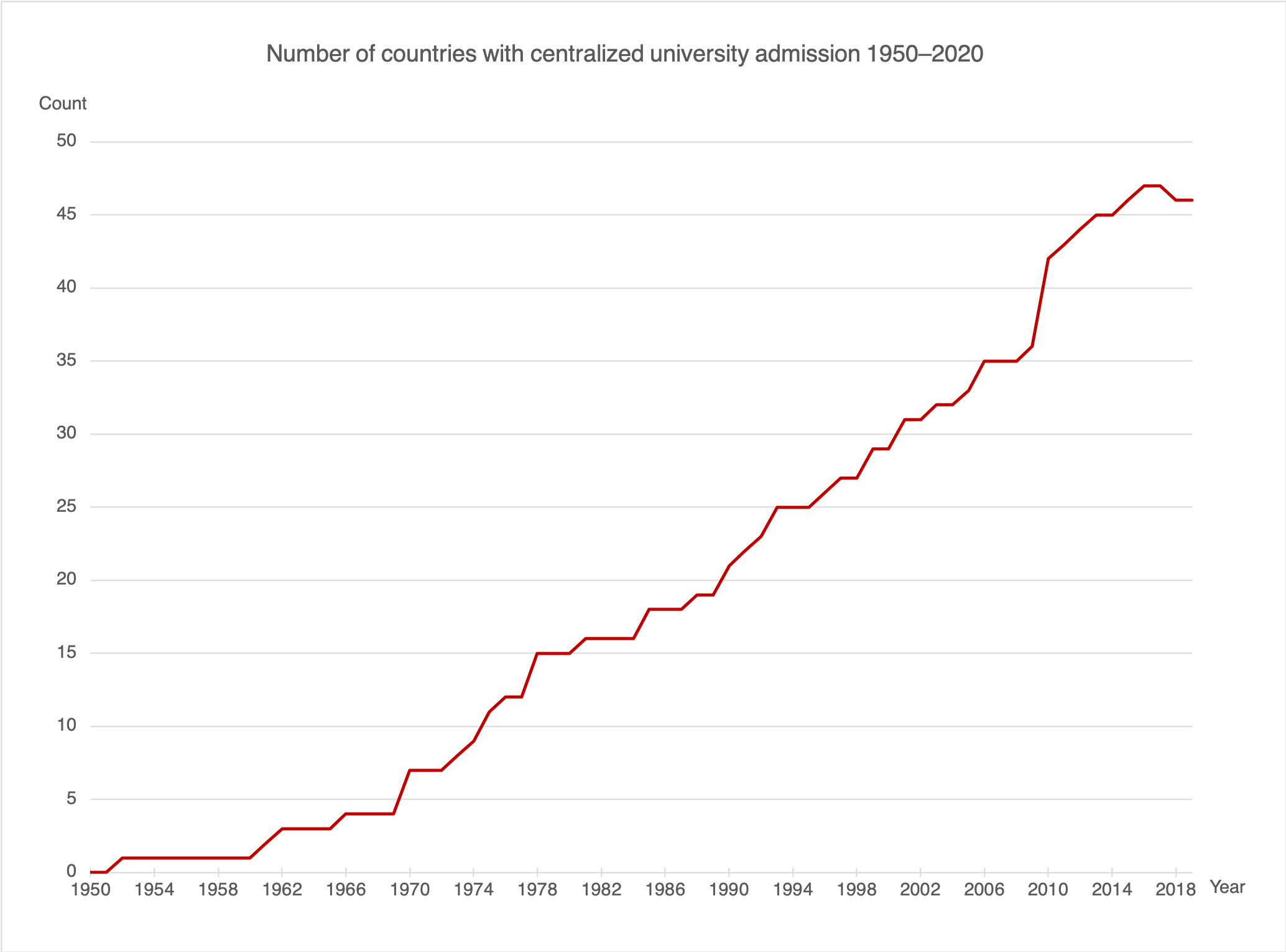The Rise of Coordinated Choice and Assignment Systems in Education Markets Around the World
Abstract
This paper reviews current policies regulating access to education worldwide and documents the rise of platforms implementing coordinated choice and assignment systems in education markets. It reviews primary, secondary, and higher education markets in 149 countries to determine the use of coordinated systems for processing applications and assignments. The paper also documents the policy details surrounding these systems, focusing on assignment mechanisms, priority criteria, preference reporting, application timing, and information provision. The analysis reveals a substantial increase in the adoption of coordinated systems, with 60 percent of the countries reviewed implementing some form of coordinated mechanism to determine access to education. The study shows that policy choices “in the wild” exhibit significant heterogeneity and often create incentives for families to behave strategically, regardless of the specific assignment mechanism used. Finally, many of the policies reviewed do not align with best practices, presenting a unique opportunity to enhance equity and efficiency through evidence-based adjustments. The trend in adoption suggests that many low- and middle-income countries will implement digital platforms to coordinate access to education and could look to lessons from empirical market design when creating new systems, potentially leapfrogging to the frontier of systems that provide access to education.
Graphs From the Paper
- Published: World Bank Development Report: Background Papers 2024
- Date: 2024



